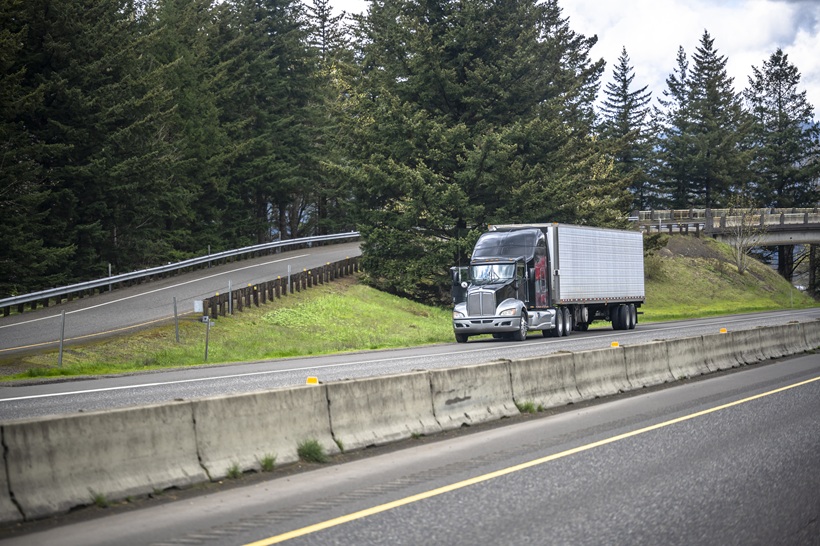
4 Regulatory Developments Discussed at Truckload 2024 That Are Impacting Carriers
Regulations and laws affecting the transportation industry may be thought of as akin to Texas or heartland weather conditions – wait a minute, and they’ll change, often precipitously. Thankfully for fleet managers and industry executives, regulations and legislation can’t be introduced and enforced immediately like a spring hailstorm.
But between the Federal Motor Carrier Safety Administration (FMCSA), U.S. Congress, and state legislation, changing rules and laws can feel like flood-level precipitation if your company isn’t up on the latest developments.
Regulatory issues were a huge point of discussion at the recent Truckload 2024 conference, held by the Truckload Carriers Association (TCA) from March 23-26 at the Gaylord Opryland Resort & Convention Center in Nashville. 2023-24 TCA chairman Dave Williams, the Senior Vice President of Equipment and Government Relations at Knight-Swift Transportation noted that, “Every time we turn around there’s something that ends up bringing a significant challenge.”
One such challenge in the transportation industry is navigating changing labor rules governing independent contractors, which have made business difficult for owner-operators and carriers that use them, particularly in California. However, several other regulatory and legislative items were brought up in TCA’s Highway Policy Committee and Regulatory Policy Committee at Truckload 2024, each of which held sessions on March 24.
Let’s look at four items addressed by the committees at Truckload 2024:
1. Truck parking
The lack of available parking for trucks has been a topic of much interest in transportation for several years now. In a January webinar, TCA Senior Vice President of Government Affairs and Safety David Heller called parking the “No. 1 issue” for professional drivers and cited research showing that the average driver loses $5,000 per year in productivity looking for safe parking. Furthermore, the November 2021 infrastructure bill passed by Congress and signed into law by the White House lacked dedicated funding for truck parking.
The federal government and Congress are now addressing the issue, though. In January, the federal Department of Transportation announced $300 million in funding for truck parking in seven states. Currently, Congress is considering the Truck Parking Safety Improvement Act, which has bipartisan support and 61 co-sponsors across the House and Senate. It would fund $755 million in new truck parking projects over three years.
2. Nuclear verdicts and tort reform
Since 2010, the frequency of $1 million+ crash judgments against fleets has skyrocketed, while the frequency of fatal crashes per hundred million large truck miles has declined. To discuss this trend and how litigation can be taken advantage of by lawyers, Lee Parsley, general counsel at Texans for Lawsuit Reform, spoke to the Highway Policy Committee.
Just one verdict can cause a carrier’s insurance rates to soar or force it out of business completely. In 2023, at the state level, Florida, Georgia, and Iowa took action and either passed comprehensive tort reform or laws that directly address trucking litigation and protect carriers from frivolous or inflated judgments. However, some regions may not have judicial systems that are as likely to side with a carrier, so this issue is worth keeping an eye on.
3. Speed limiters
In 2016 and 2022, the FMCSA proposed – and later rescinded – rulemaking that would force large commercial vehicles to be equipped with a speed limiter. While another limiter proposal was expected at two different points last year, it now seems certain to arrive in May. If the rule is not pushed back again, carriers and drivers will get plenty of opportunity for public comment on the proposal. It could be years before potential enforcement begins.
But that’s not the only speed limiter rule that could have a massive impact on the industry.
In California, state Sen. Scott Weiner has introduced legislation that would limit speeds on every new vehicle sold in the state starting with the 2027 model year – effectively, only two years from now. Almost 1 of every 8 people in the country lives in the Golden State, but the rest of the country often goes along with California automotive rules, whether it be from states piggybacking on the more stringent laws or because automakers deem it too expensive to sell more than one version of a car or truck.
4. Side underride guards
In April 2023, the National Highway Traffic Safety Administration (NHTSA) published an Advanced Notice of Proposed Rulemaking (ANPRM) for studying the effectiveness of mandating side underride guards to trailers. In that report, the government estimated that installing side underride guards on trailers would cost up to $1.2 billion per year. The ANPRM also estimated that 17.2 lives could be saved, and 69 serious injuries prevented annually.
Industry professionals don’t quite see the cost-benefit analysis of this rule as safety advocates do, as this would also decrease fuel efficiency by adding weight to the trailer. For fleets, a telematics solution like a sensor or side camera could conceivably warn a driver when an object is at the side of the trailer at a fraction of the cost.
Regulations and laws are unpredictable. Transflo isn’t.
Anticipating the exact laws and regulations that will affect transportation can sometimes be a fruitless endeavor – much like trying to nail down if that afternoon storm in May will bring tornadoes or a quick drenching. This year, an upcoming presidential election and the potential for some of these federal rules to be revoked next year makes the regulatory atmosphere that much more unstable.
What won’t be changing is Transflo’s commitment to products that make life easier and safer for fleet managers, industry executives, and drivers, whether you have 10 trucks or 1,000. Our telematics solutions, including ELDs, dashcams, and asset trackers, offer customizable integrations and fleet management platforms that allow a carrier to take safety and fleet maintenance steps on its own terms.
If you’re interested in learning more about telematics or any of Transflo’s products for carriers and drivers, contact us today.



